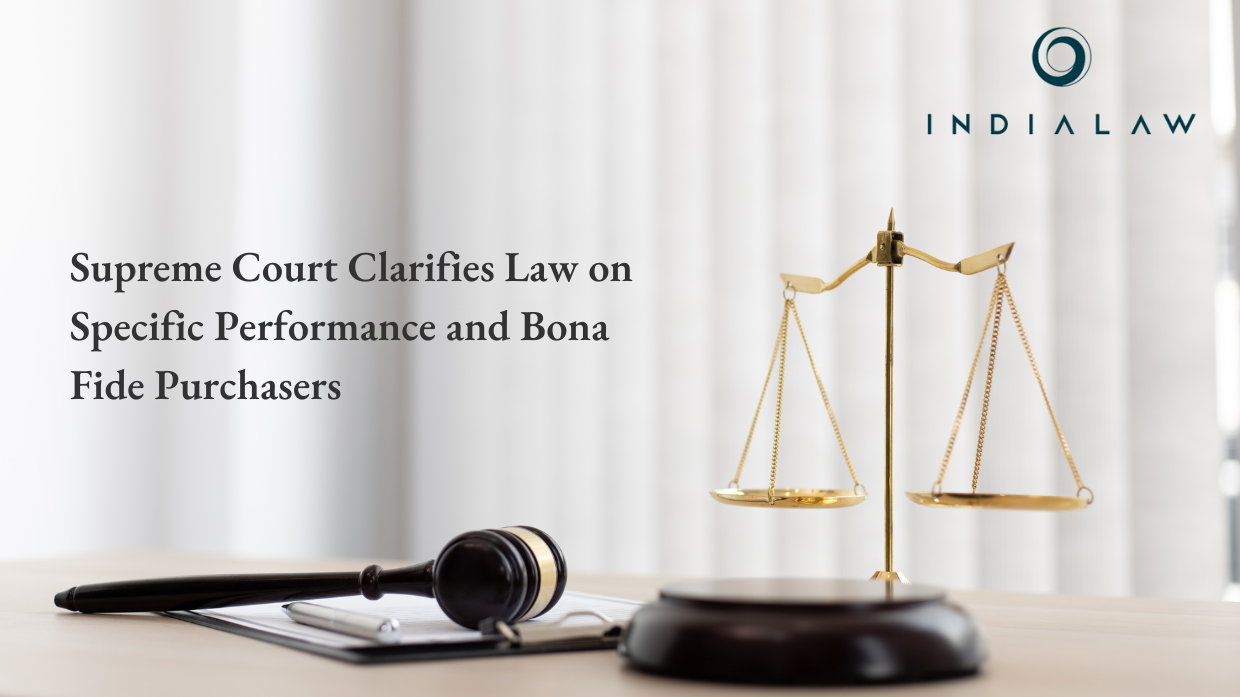Supreme Court Clarifies Law on Specific Performance and Bona Fide Purchasers

In a pivotal decision, the Hon’ble Supreme Court of India upheld the Hon’ble Punjab and Haryana High Court’s ruling in the long-running legal battle of Manjit Singh & Anr. v. Darshana Devi & Ors. The judgment underscored the critical principles of property law, including the duties of subsequent purchasers and the sanctity of equitable rights.
The dispute arose when the plaintiff, Darshana Devi, sought specific performance of unregistered sale agreement after the original owner sold the property to third parties later that year. While the Trial Court ruled in favor of the plaintiff, recognizing the validity of the agreement, the District Court overruled this finding in Appeal. Thereafter, the Hon’ble Punjab and Haryana High Court, reinstated the Trial Court’s decision, reasoning that the subsequent purchasers—Manjit Singh and another appellant—could not claim the status of bona fide purchasers under Section 19(b) of the Specific Relief Act, 1963.
The Appellants argued that they had purchased the property in good faith and for consideration, thereby asserting their right to the property without notice of any prior agreement. However, the High Court held that they failed to exercise due diligence, such as investigating the property’s title or the nature of the plaintiff’s possession. This finding was critical since the property was in the possession of the plaintiff’s husband, a mortgagee, at the time of the sale. Evidence also pointed to inconsistencies in the appellants’ payment records, raising doubts about their good faith.
The Supreme Court, while dismissing the appeal, observed that Section 19(b) of the Specific Relief Act protects bona fide purchasers but places the burden of proof squarely on them. Relying on established precedents, the Court held that mere claims of good faith are insufficient and purchasers must demonstrate honesty and the exercise of due care. The Court also delved into the broader interpretation of “good faith”. The Court emphasized that good faith demands not only honesty but also the absence of negligence. Consequently, the Supreme Court affirmed the plaintiff’s right to specific performance, allowing her to execute the decree after decades of legal battles.
The Hon’ble Apex Court’s decision by holding subsequent purchasers to stringent standards of due diligence, has highlighted the necessity of ethical practices in property acquisition. However, the decision also raises concerns about the practical difficulties genuine purchasers might face in an imperfect market where historical records and possession claims can be murky and such cases will remain a challenge for the judiciary.
By entering the email address you agree to our Privacy Policy.



